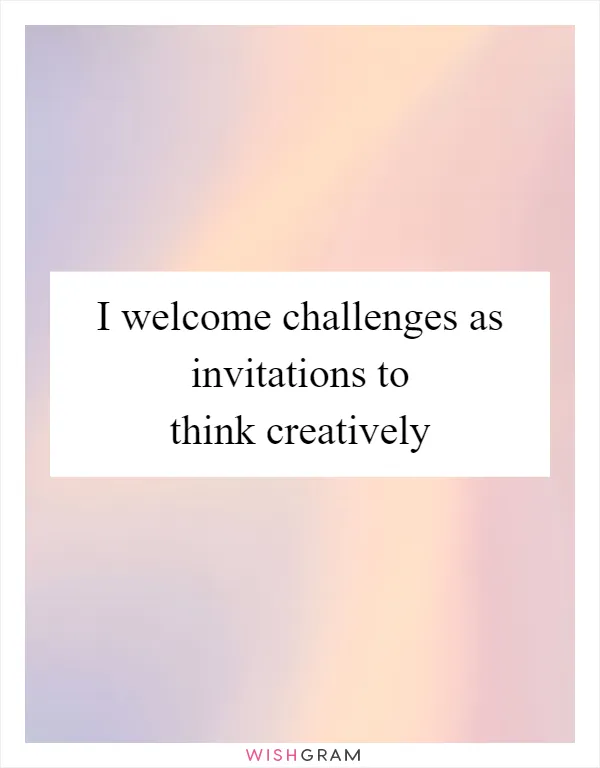I welcome challenges as invitations to think creatively
Do you ever feel like you're faced with a challenge that seems impossible to overcome? It's easy to feel overwhelmed and defeated when you're presented with a difficult situation. However, instead of viewing challenges as roadblocks, try to see them as invitations to think creatively. This affirmation can help you shift your mindset and approach challenges with a positive attitude.
When you welcome challenges as invitations to think creatively, you open yourself up to new possibilities. Instead of feeling stuck and limited, you start to see opportunities for growth and innovation. By embracing challenges, you can develop new skills and learn from your experiences. You may even discover solutions that you never would have considered before.
Thinking creatively means approaching problems from different angles and exploring unconventional solutions. It requires you to be open-minded and willing to take risks. When you welcome challenges as invitations to think creatively, you give yourself permission to try new things and experiment with different approaches. This can lead to breakthroughs and new discoveries.
It's important to remember that challenges are a natural part of life. No one is immune to difficulties or setbacks. However, how you respond to these challenges can make all the difference. By embracing challenges as invitations to think creatively, you can turn obstacles into opportunities. You can use your creativity to find solutions and overcome obstacles, rather than feeling defeated and giving up.
One way to cultivate a creative mindset is to practice brainstorming. This involves generating as many ideas as possible, without judging or evaluating them. By allowing yourself to think freely and without limitations, you can come up with new and innovative solutions. You can also try approaching challenges from different perspectives, such as imagining how someone else might approach the problem or considering how the problem might look in a different context.
